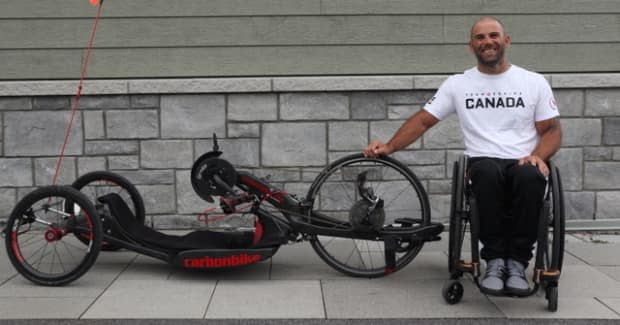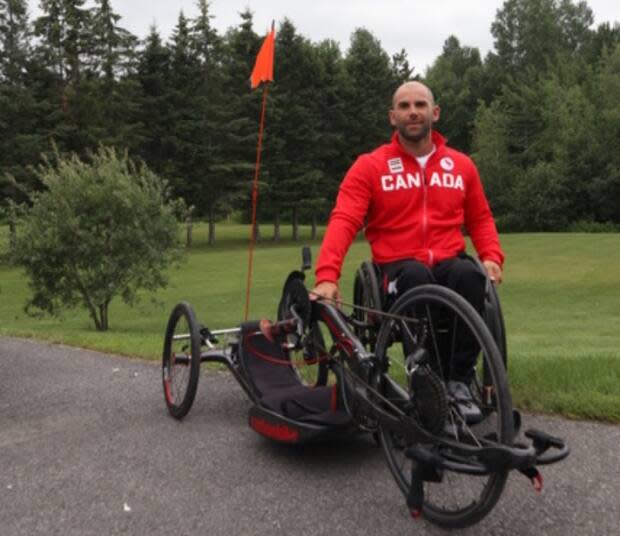Hawkesbury man heads to his first Paralympic games in para-cycling

After severing his spine in a 2009 dirt-bike crash, Joey Desjardins found himself in a hospital bed, unable to move.
The native of Hawkesbury, Ont., severed his spine at the T5 level, which left him paralyzed from the chest down. Desjardins spent months in the hospital learning how to move again.
He purchased his first adapted bike six months after his injury.
"It brought me so much happiness and independence," Desjardins says of learning to para-cycle, "Something that was taken from me after the injury."
Twelve years later, he is heading to Tokyo this summer where he hopes to take in each and every moment of his first Paralympic experience.
"Touching ground, breathing in the air, and just taking a moment for myself and realizing, you know, how far I've come"
Desjardins said he was inspired to compete in para-cycling after meeting Canadian Paralympic legend Rick Hansen in 2012.
"That's when it clicked that I really wanted to push the physical limits of my body," says Desjardins, who quickly rose to success, competing in several world championships, and eventually earning a bronze medal in 2019.
He competes in the H3 category, which includes all para-cyclists with injuries in the thoracic region — from the base of the neck down to the abdomen. It's the largest category of the five para-cycling classes.

Pandemic challenges
Over the past year and a half of training, Desjardins says the COVID-19 pandemic has posed some challenges. He was not able to fly to warmer climates to train over the winter.
Instead, he trained on an indoor spinner that simulated different courses, inclines and weather conditions — even those of the Tokyo course.
"I've been riding the course all winter long," says Desjardins, "Just being able to put my wheels down on a real course will be pretty special for me."
Despite the obstacles, he still has high goals for this summer's race.
"To medal at the Paralympics would be a dream come true," says Desjardins, "I'm going to have to work harder than I ever have before."

